NICHD fellows joined together at the Ronald Reagan Building and International Trade Center in Washington, D.C., on October 27, 2023, to attend the 18th Annual Meeting for Postdoctoral, Clinical, and Visiting Fellows and Graduate Students and Postbacs. During a series of career round table discussions, fellows had the opportunity to visit with career speakers from research programs in academia and government, industry, and science administration.
We followed up with the speakers to capture important information about their favorite career features, their best advice, and the most frequently asked questions during the retreat.
Want to read more about the 2023 fellow’s retreat? Check out the December 2023 issue for the full retreat recap!
Erika Barr, PhD
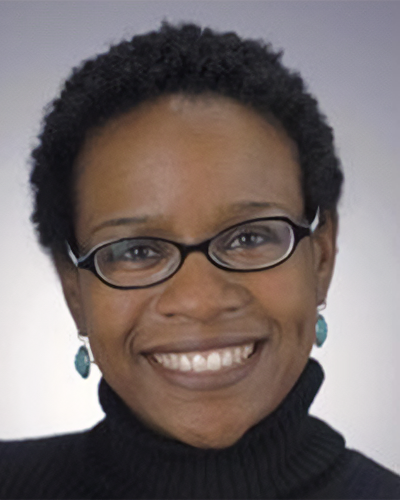
Erika Barr, PhD
Health Scientist Administrator–Program Officer
Eunice Kennedy Shriver National Institute of Child Health and Human Development
Dr. Barr has a passion for increasing the number of underrepresented individuals in the biomedical sciences, and she continues to pursue this work in the Office of Health Equity as a program officer and intramural division liaison.
What is your favorite feature about your career?
Throughout my career, my favorite feature has been mentoring students and witnessing their growth from being early learners in research to successful STEM professionals.
What advice would you give to someone who is interested in a similar career?
If you have an interest in increasing diversity or working with students who are from disadvantaged/underrepresented backgrounds—get involved now. Become a mentor; volunteer at local school science fairs; and share your career/educational path to encourage other students.
What was the most common question asked about your career during the retreat?
The most common question was “How did you know what you wanted to do with a PhD in biology?” I never really “knew” what I wanted to do. However, I used my experiences to determine what I was passionate about and decided to pursue a career that involved mentoring, increasing diversity in STEM, and ensuring that all have access to opportunities in STEM.
Shilpy Dixit, PhD
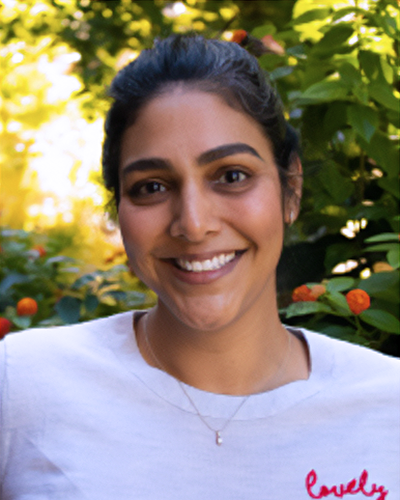
Shilpy Dixit, PhD
Program Officer
National Center on Sleep Disorders Research, National Heart Lung and Blood Institute
Dr. Dixit strives to elevate the critical relationship between sleep and circadian biology research and health outcomes through coordination across NIH and other Federal agencies, academia, and public stakeholders.
What is your favorite feature about your career?
As a program officer, I can engage with biomedical research and science on a much broader scale and identify trends and opportunities emerging in the field. This is helpful when mentoring early career scientists and when designing programs to grow the research field.
What advice would you give to someone who is interested in a similar career?
Leveraging your network is critical at any career stage, so set up informational interviews to make those connections and learn more about different positions out there.
What was the most common question asked about your career during the retreat?
The most common question I get is “How…?” And I always hated when someone would say something like “Oh, I was in the right place at the right time.” The key is positioning yourself to be in the right place and trusting that this is the right time. Stay open to different possibilities; talk to people about what they do and how they like it; participate in different opportunities to broaden your network; and recognize that you can say “no” if that option is not for you. It will make it easier to say “yes” to the right thing at the right time.
Charly Guardia, PhD
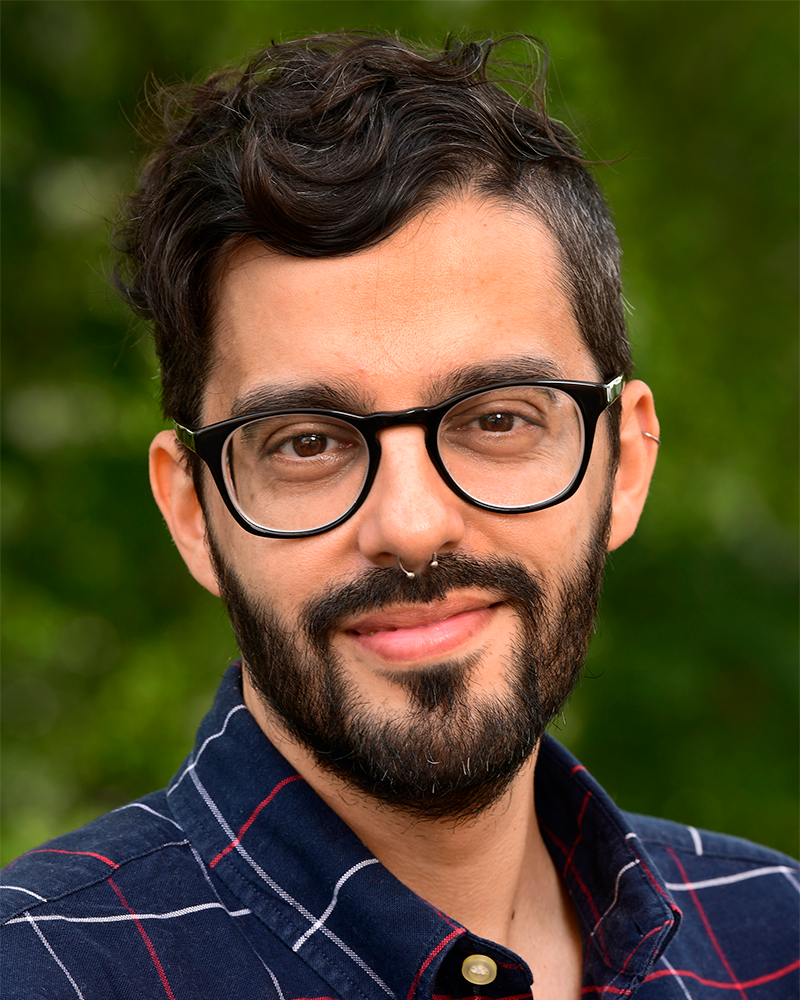
Charly Guardia, PhD
Earl Stadtman Tenure-track Investigator
National Institute of Environmental Health Sciences
As an Earl Stadtman Tenure-Track Investigator, Dr. Guardia studies the molecular mechanisms that control autophagy response during placental development in homeostasis and disease. His research plan focuses on generating a comprehensive understanding of placental-specific autophagy processes and the connection with the secretory pathway during placental development and function.
What is your favorite feature about your career?
Having the freedom to explore new and exciting ideas and techniques is one of the things I enjoy most about my job. It is also rewarding to see my trainees' progress!
What advice would you give to someone who is interested in a similar career?
Make your own “scientific brand” by identifying your own niche and ideas and be cognizant of your own strengths and weaknesses. Don't be afraid to try new things and be flexible enough to change directions if things don't work out. It is your own journey and experiences that make you unique, so use that power to push your career forward. Take action to build resilience, and make sure you always have a backup plan, a backup plan, and a backup plan!
What was the most common question asked about your career during the retreat?
The most common question was: “Is it difficult to make it in a new field when you don't have much experience in it?” Because I am an outsider to my new field, I used that to highlight my uniqueness. It helped me persuade other scientists that there is a new, exciting, innovative way to approach similar or even new questions—and that also the same old problems can be viewed in a new light.
Collins Jones, PhD
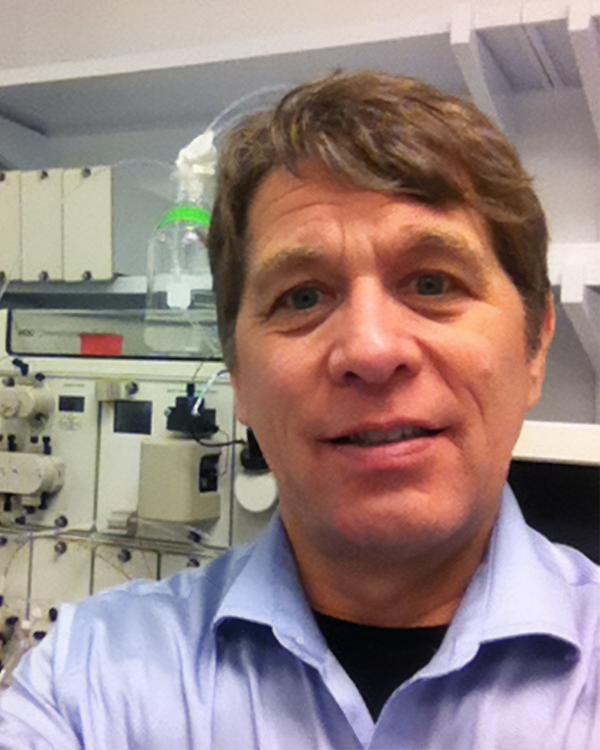
Collins Jones, PhD
Biotechnology Program Coordinator
Montgomery College
As a biotechnology program coordinator, Dr. Jones works closely with Maryland biotech companies including MilliporeSigma, AstraZeneca, GlaxoSmithKline, Catalent, Kite, BioNTech, Qiagen and RegenxBio, to develop and maintain industry-specific curricula. In addition, he serves as a member of the Montgomery County Life Science Business Incubator Review Board, provides training nationwide to a diverse portfolio of firms and organizations, and serves as a consultant for several incubator companies.
What is your favorite feature about your career?
I enjoy interacting with students, starting them on a career path and, for me, job security. Many of my former students are now in management positions and are making more than $130,000 per year before bonuses. I really like interacting with the biotech industry to develop and implement curriculum that aligns with the workforce needs of the industry. As an example, I am currently creating a hands-on cell and gene therapy certificate program at the request of the local cell and gene therapy industry. The players in industry and academia have provided input for the curriculum, and now I must take that input and develop a lecture and lab course that prepares students to enter that specific biotech workforce sector.
What advice would you give to someone who is interested in a similar career?
Try to land an adjunct professor position if you want to be a teaching professor. Community colleges generally have open adjunct positions and often offer courses in the evening, so one can put in a full day at the lab and then teach a class. When you teach, try to make it interesting and applicable to the real world—use examples from what you do at your job to make it meaningful to the students. Be willing to stay after class to help students (it helps on the student reviews, which are valued during the hiring process).
What was the most common question asked about your career during the retreat?
Many of the questions can be condensed into: “How were you able to develop additional external consulting opportunities, and what can I do to achieve the career I want?”
In a nutshell, there are two components to my answer. First, networking in multiple venues is critical. Besides meeting lots of people, networking also includes spending time with and helping others get where they want to go in a career, and personally being open to learning. Second, the success of the students I placed in industry created opportunities for me with respect to consulting.
My career has taken lots of twists and turns, I am not sure if that was by chance or subconsciously deliberate. A common thread is recognizing that the skill set you have developed can be applied across many different areas of science. When you interact with industry, think first about how you have applied your skills, methods, and knowledge to solving different challenges in human health, as opposed to the specific research that you did. Often, companies hire you more for your skill set than your specific research. There are of course exceptions.
Kate Monzo, PhD
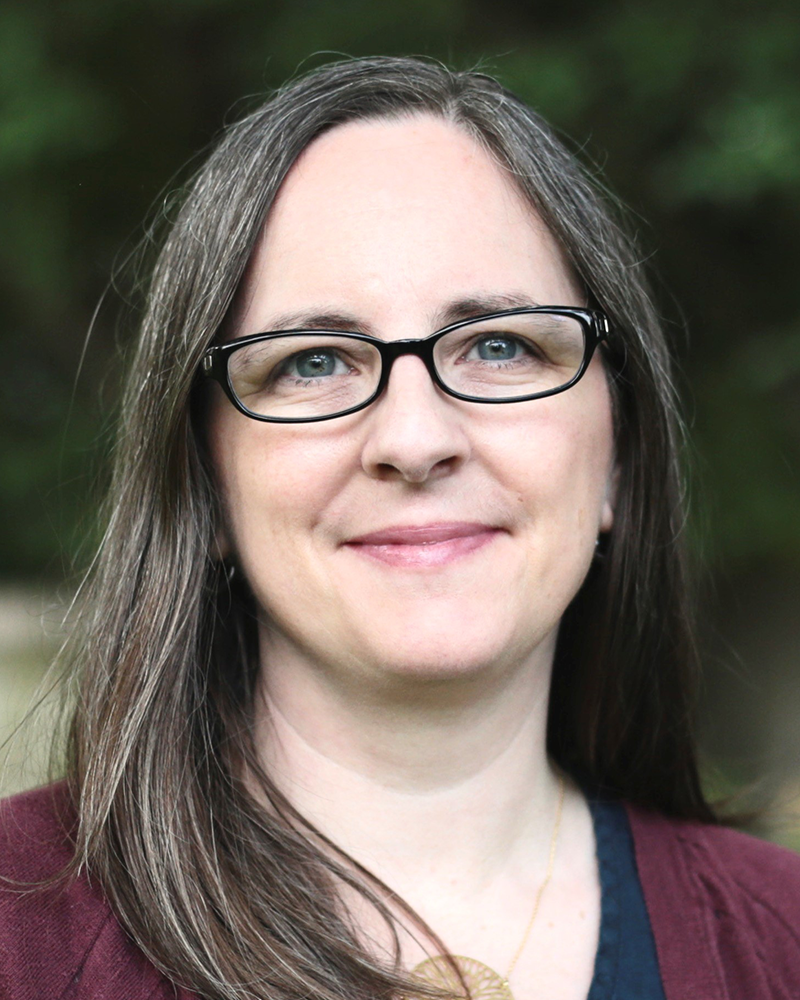
Kate Monzo, PhD
Professor of Biology
Montgomery College
Dr. Monzo teaches introductory biology for majors and non-majors, Principles of Genetics, and Fundamentals of Scientific Research. She is also a co-coordinator for the STEM Scholars Honors Program and course coordinator for non-major biology and genetics.
What is your favorite feature about your career?
There are always new students to work with, different teaching methods to explore, and exciting collaborations to make. I enjoy having so many opportunities to flex my academic and scientific muscles.
What advice would you give to someone who is interested in a similar career?
Take care to think deeply about the student population you are interested in teaching. I have no doubt NICHD postdocs are capable of teaching any biological topic, but people who are interested in teaching should make sure to consider the needs of their future students.
What was the most common question asked about your career during the retreat?
A common question was “How can a research scientist with limited teaching experience find opportunities to teach?” The most important thing to do is demonstrate your interest in teaching. Remember, teaching is not a default career pathway! You should attend workshops offered by NIH and professional organizations in your field. Take time to read about pedagogy—inclusive teaching practices are very important. Try to connect with teaching faculty for mentorship opportunities.
Kyle O’Connell, PhD
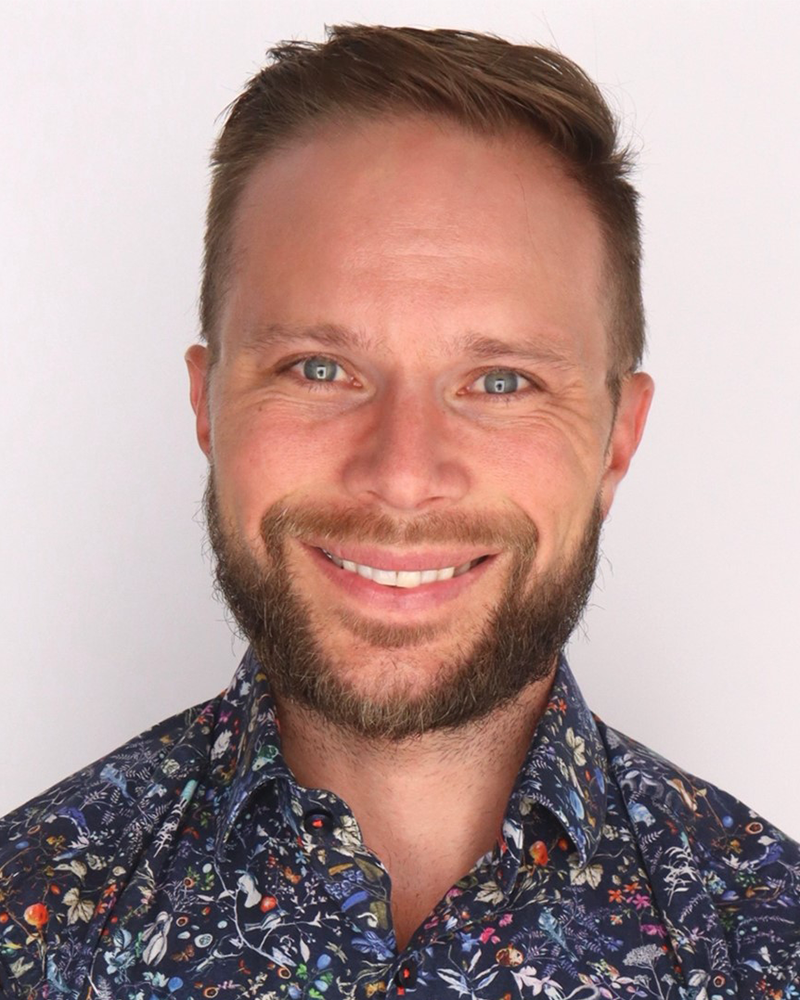
Kyle O'Connell, PhD
Bioinformatics Data Scientist
Deloitte Consulting
As a data scientist with expertise in genomics and bioinformatics, statistical modeling, and evolutionary biology, Dr. O’Connell works at the intersection of bioinformatics, cloud, and AI initiatives across federal health care clients.
What is your favorite feature about your career?
I love that I get to keep learning. Consulting requires staying one step ahead, and I like how this pushes me to keep up with both the science and the technology. I also love getting to work on a variety of problems. One day I may be doing Cloud engineering while another I am calling variants on viral DNA sequences. This variety makes me think in different ways and keeps me interested.
What advice would you give to someone who is interested in a similar career?
Focus on building key skills. If you want a technical role, then be able to speak the language of the technical people in the target company. Also, be able to speak to your science in a way your mother would understand, or the way you would present to a diverse university department. Recruiters won’t understand your science, and a lot of business people won’t either, but they will think it is interesting and an asset if you can speak to it in a way they understand.
What was the most common question asked about your career during the retreat?
Many people asked about my work-life balance. I said I have better work-life balance since leaving academia because I am not up every night trying to finish another paper—as if getting one more paper was finally going to make me the right fit for the next job. My work metrics are more clearly defined, so it is easy to decide what I should and should not work on, which allows me to work fewer hours.
Natalie Porat-Shliom, PhD
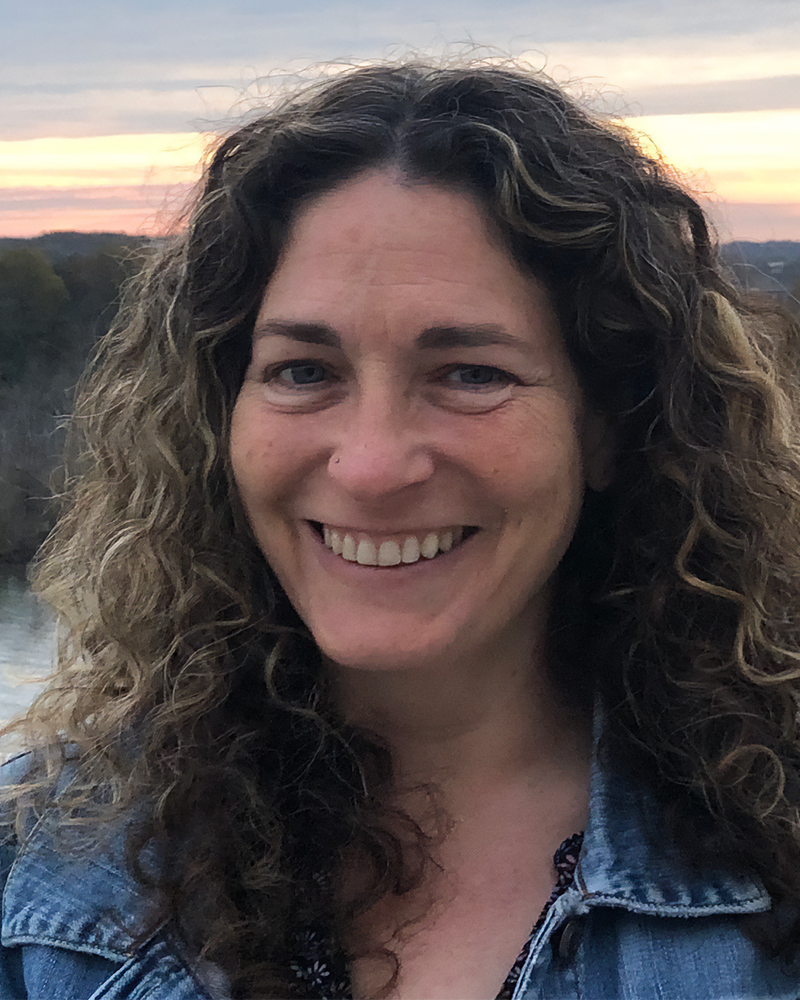
Natalie Porat-Shliom, PhD
Earl Stadtman Tenure-Track Investigator
National Cancer Institute
As an Earl Stadtman Tenure-Track Investigator, Dr. Porat-Shliom studies mitochondrial biology in the liver using intravital microscopy. Prior to her current position, Dr. Porat-Shliom received the NIH Pathway to Independence Award (K99/R00) for her postdoctoral work at NCI using intravital microscopy to study mitochondria in the salivary gland.
What is your favorite feature about your career?
Science is a field where learning never stops, and I find joy in expanding my knowledge and skills. I also find the process of uncovering new knowledge and contributing to our understanding of the world to be intellectually stimulating.
What advice would you give to someone who is interested in a similar career?
We frequently fall into the trap of thinking that career paths are linear, but in truth, they resemble a tangled ball of yarn. To navigate your way, you must keep moving forward; those knots won't untangle on their own. Keep in mind that it's perfectly acceptable to discover that the thread you've been following isn't the right fit for you. In that case, simply choose another strand and continue your journey.
What was the most common question asked about your career during the retreat?
One recurring theme of our discussions revolved around the significance of obtaining a grant in the pursuit of a faculty position. In my perspective, the importance of securing a grant cannot be overstated for several reasons. Beyond merely showcasing your capability to acquire financial support, it also underscores your proficiency in grant writing—an art distinct from manuscript composition. Gaining proficiency in grant writing is a vital component of scientific training that is often underemphasized during postdoctoral training.
